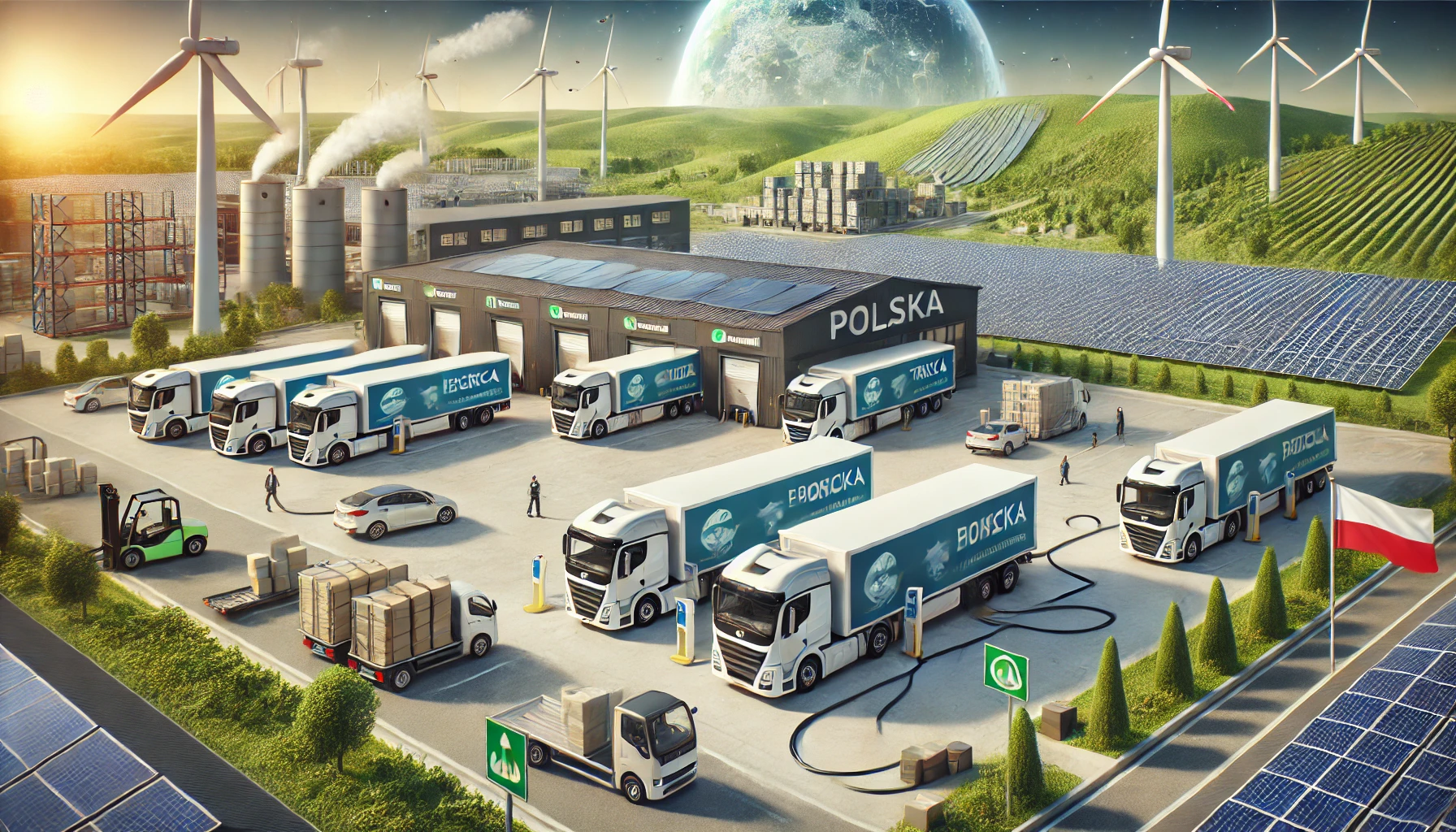
W ciągu ostatnich kilku lat Polska poczyniła znaczne postępy w przejściu na technologie zrównoważone i przyjazne dla środowiska. W branży transportowej, będącej jedną z głównych przyczyn wzrostu emisji dwutlenku węgla, zachodzą istotne zmiany. Elektryczne ciężarówki stają się ważnym elementem strategii polskich firm logistycznych. Kraj ten naprawdę stara się ograniczać negatywne skutki dla środowiska, a jednocześnie zwiększać efektywność ekonomiczną swojej pracy.
Dlaczego elektryczne ciężarówki są ważne dla Polski?
Kraj ten jest strategicznym kierunkiem w Europie Środkowej i stanowi ważne ogniwo w handlu międzynarodowym. Rozwój i wzrost wolumenu przewozów towarowych ma jednak negatywny wpływ na środowisko. Tradycyjne pojazdy napędzane olejem napędowym powodują poważne szkody dla środowiska. Elektryczne ciężarówki (e-trucks) to logiczny krok w kierunku poprawy sytuacji. Takie samochody:
- zmniejszyć emisję gazów cieplarnianych;
- zmniejszyć poziom hałasu, co jest szczególnie ważne w dużych miastach;
- pomóc firmom w przestrzeganiu unijnych norm środowiskowych.
Ponadto Polska jest jednym z wiodących krajów w produkcji akumulatorów i pojazdów elektrycznych, co stwarza korzystne warunki dla rozwoju takiego transportu towarowego.
Polskie firmy wprowadzają elektryczne ciężarówki?
Przejście na bezpieczny, przyjazny dla środowiska transport wymaga znacznych inwestycji i czasu, ale polskie firmy logistyczne już podejmują aktywne kroki w tym kierunku:
- Wielu znaczących graczy rynkowych, takich jak InPost, Grupa Raben i DPD Polska, rozpoczęło już integrację elektrycznych ciężarówek ze swoimi flotami. Na przykład InPost wykorzystuje elektryczne samochody dostawcze do dostarczania towarów po miastach, redukując emisję i optymalizując trasy. Raben testuje elektryczne ciężarówki do transportu regionalnego, co pozwala określić ich wydajność i niezawodność w polskich warunkach klimatycznych.
- Aby efektywnie wykorzystać elektryczne ciężarówki, konieczna jest rozbudowana sieć ładowania. Polskie firmy aktywnie inwestują w budowę tego typu obiektów. Instalacje do ładowania pojazdów towarowych pojawiły się już w Warszawie, Wrocławiu i Krakowie.
- Polski rząd zapewnia dotacje i zachęty dla firm, które przestawiają się na transport przyjazny środowisku. Przykładowo istnieje już program finansowania zakupu elektrycznych ciężarówek i montażu ładowarek.
Wiele firm początkowo postrzega transport technologiczny jako kosztowną inicjatywę. Koszt elektrycznych ciężarówek jest o 30-40% wyższy niż ich odpowiedników z silnikiem Diesla. Jednak długoterminowe korzyści przewyższają początkowe koszty. Elektryczne ciężarówki wymagają niższych kosztów utrzymania, a koszt energii elektrycznej jest niższy niż w przypadku oleju napędowego.
Przejście na pojazdy elektryczne pozwala firmom zmniejszyć obciążenia podatkowe i uzyskać dostęp do obszarów o ograniczonym dostępie w Europie.
Przyszłość to pojazdy elektryczne
Przejście na elektryczne ciężarówki to nie tylko trend, ale także konieczność dla polskich firm logistycznych chcących sprostać unijnym standardom i wymaganiom konsumentów.
Dalszy rozwój w tym kierunku uzależniony jest od następujących czynników: doskonalenia technologii akumulatorów, rozbudowy sieci ładowania oraz wsparcia rządowego. Można jednak już powiedzieć, że ciężarówki elektryczne odgrywają kluczową rolę w przyszłości polskiej logistyki.
Elektryfikacja transportu towarowego to decydujący krok dla rozwoju Polski, który przyniesie korzyści zarówno środowiskowe, jak i gospodarcze.






